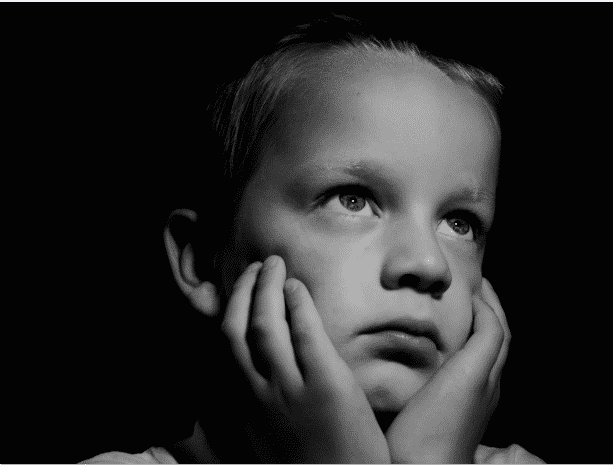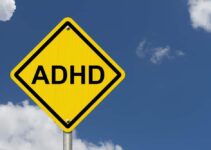Executive function disorder is a term commonly used to describe deficits in the skills that are used to manage life’s everyday tasks — impacting planning, organization, working memory, task initiation, cognitive flexibility, and self-control.
However, executive function disorder is not considered to be a diagnosis, since it is not classified in the Diagnostic and Statistical Manual of Mental Disorders (DSM–5), a guide used by clinicians to diagnose mental health conditions.
Executive function deficits are often part of other neurological and developmental conditions, which is why it is important to know how to recognize signs in your child. Understanding executive function issues, opens the door to create a support plan that can significantly improve everyday functioning.
Table of Contents
What are the signs?
Executive functions refer to a set of mental processes that regulate goal-directed behavior.
The three areas of executive functioning:
- working memory,
- cognitive flexibility, and
- inhibitory control
are where challenges appear.
We see these challenges through behaviors that impact a child’s everyday functioning.
A child with executive functioning issues may struggle to:
- Focus on their current task
- Maintain focus long enough to complete the activity
- Plan their actions
- Think things through to make thoughtful decisions
- Organize information
- Prioritize
- Resist the temptations of instant rewards
- Control emotions, excitement, anger, or frustration
- Remember the information heard or read
- Understand social circumstances
- Reciprocate
- Listen carefully
- Change behavior when it doesn’t bring results
- Evaluate the results of their behavior
- Learn from mistakes by reflecting on past experience
- Implement newly learned information or a skill in a new context
- Estimate the time needed to complete an activity or task
These challenges are pervasive, appearing in more than one type of context or activity.
For example, challenges with focusing are likely to appear when a child is working a puzzle or completing schoolwork.
Struggles with working memory may occur both when a child is learning to play a new board game that involves a set of steps and rules, and when they are working on a math problem and having to apply math formulas they’ve just learned about.
Read more about signs of executive function challenges at different ages here: https://parentingpod.com/executive-functions
What are the causes and risk factors for executive function disorder?
The exact causes of executive function disorder are still largely unknown. However, there are many possibilities being identified.
According to research studies, we know that the frontal lobe of the brain is slower to develop in kids with executive functioning challenges [1].
Injuries, developmental disorders, or diseases that affect the frontal lobe can create executive function struggles. Genetics might also play a role in the development of executive functioning issues, as kids with the disorder often have a parent with similar difficulties.
How is executive function disorder diagnosed?
Executive function disorder cannot technically be “diagnosed” since it’s not a listed diagnosis in the DSM-5. However, there are many assessments and rating scales that can detect difficulties with executive functioning in different domains.
These tools can provide better understanding to help a child overcome executive function difficulties.
Some of the executive functioning assessments include:
- To assess broad executive functioning in the school and home environments: BRIEF® Behavior Rating Inventory of Executive Function®
- To assess ability to pay attention: Test of Variables of Attention (TOVA), Integrated Visual and Auditory CPT (IVA-2), Conners Continuous Performance Test II (CPT II)
- To assess inhibitory control and ability to postpone an automatic reaction: Stroop Color and Word Test, The Color-Word Interference Test of Delis-Kaplan Executive Function System (D-KEFS)
- To assess working memory: Digit Span and Spatial Span subtests of the Wechsler Intelligence Test for Children (WISC), working memory tasks in the WJ-III Cognitive Battery
- To assess planning, sequencing and organizational skills: Tower of Hanoi, The Tower Test of D-KEFS; Rey–Osterrieth Complex Figure Test
- To assess ability to shift from one task to another: Wisconsin Card Sorting Test, The Sorting Test of D-KEFS, Minnesota Executive Function Scale (MEFS); Trail Making Tests
- To assess ability to think of words and generate ideas: Controlled Oral Word Association Test, Verbal Fluency Test in the D-KEFS, Word Generation subtest in the NEPSY-II
Each of these tests have age restrictions for use.
For example, Wisconsin Card Sorting Test can be used with children ages 7 and up, while the Sorting Test of D-KEFS can be used with children ages 8 and up.
Which experts can help?
Clinical child psychologists can evaluate a child to identify executive functioning difficulties.
They are also equipped with the skills and knowledge to diagnose ADHD and other mental health conditions that can affect executive functioning, like anxiety.
To make an appointment for evaluation, you may need a referral from your family doctor. You might also want to first rule out physical conditions that can impact your child’s functioning, like hearing or vision, before you proceed with further assessment.
What conditions co-occur with executive function issues?
Executive functioning deficits are recognized in ADHD, Tourette syndrome, Autism Spectrum Disorder (ASD), and specific learning disabilities, such as dyslexia.
Executive functioning struggles can be early signs of these co-occurring disorders.
Executive Functioning and ADHD
Children with ADHD will have difficulties in one or more areas of executive functioning. ADHD traits include difficulties in maintaining focus, planning and prioritizing, accurate time assessment, emotional control, self-awareness, managing distractions, and others. These abilities are regulated by executive functions.
Some examples of executive functioning challenges you are likely to see in the behavior of your child with ADHD are:
- Difficulty remembering what they’ve been doing earlier in the day.
- Difficulty with organizing their study material or planning steps to complete a school project.
- Difficulty staying focused on what they are doing and managing distractions.
- Difficulty assessing how much time they need for something and staying on track with their schedule.
- Difficulty managing their frustration when they are interrupted or when they do not get things done their way.
Executive Functioning and Tourette Syndrome
Children with Tourette syndrome have difficulties developing strategies to overcome problems and find it hard to use the strategies and tools that are offered to them. The primary challenge often lies in the area of inhibitory control, as they find it hard to stay focused and resist the temptation of instant reward.
This is why children with Tourette syndrome often need support to manage schoolwork and keep up with peers.
You can learn more about the link between Tourette syndrome and executive function disorder in the lecture by pediatric neurologist, Leon S. Dure. He believes that conceptualizing Tourette syndrome as an executive function disorder allows us to think about new ways of improving treatment.

Executive Functioning and Autism Spectrum Disorder
Children with autism spectrum disorder (and what was formerly diagnosed as Asperger’s syndrome) often have increased difficulties in everyday life due to poor executive functioning. Some struggle with slow processing speed, getting confused by choices, reciprocating behavior, and generalizing information from one situation to next.
Kids with ASD also have difficulty with black-and-white or concrete thinking, which limits their ability to recognize subtlety or degree.
You can read more about executive function and autism spectrum disorder/Asperger’s here: https://www.aane.org/executive-function-challenges-children-asperger-profiles/
Executive Functioning and Dyslexia
Children with dyslexia show deficits in several executive function domains specifically related to verbal and visual short-term processing and visual-spatial and auditory attention.
That means children with dyslexia have more difficulty focusing, understanding, and memorizing written and verbal material.
Assessing space and distance is often very challenging, as well.
Children with dyslexia may have challenges with working memory, too, which could also cause problems with arithmetic. Their attention span for verbal/auditory material tends to be lower than in kids without dyslexia [2].
Read about activities to support your child with dyslexia: https://parentingpod.com/dyslexia-activities/
Executive Functioning and Anxiety and Depression

It is also important to note that difficulties with executive functioning can impact relationships with others and the way we see ourselves, both of which are struggles with anxiety and depression. That’s why children struggling with executive functioning can also battle poor self-confidence.
What should you do when you suspect your child has executive function problems?
Every child acquires and improves executive function skills through practice. Children need experience in an environment that encourages this development.
When there is a physiological difference in the brain and its functioning involved — with ADHD or autism spectrum disorder, for instance — some or all executive function skills will likely never reach 100 percent. They can, however, be improved.
Here are 3 things you can do to help your child.
Understand the challenges your child is battling
You cannot provide adequate support without a good understanding of difficulties. To understand a child’s challenges, you need to understand the context in which they appear.
Parents should look for answers to these questions:
– Where do I see problematic behaviors?
– Who notices/sees these challenges?
– What are the consequences my child is experiencing because of these behaviors?
– What is my child’s reaction before and after the behavior appears?
– What does my child think about his or her challenges?
The answers to these questions help you better describe the challenges to the professionals working with your child. Then parents can better advocate for their kids, and also teach self-advocacy.
Clinical child psychologists can help parents understand which areas a child needs the most help with. They can also suggest skill-building activities or recommend professionals that can help further, such as special educators, reading specialists, academic and life coaches, or therapists.
Practice executive function skills
Executive function skills need practice to develop. Providing kids with experiences to practice memory, problem-solving, resisting temptations, etc., is very important for executive function improvement.
Professor Philip Zelazo, Ph.D., from the Institute of Child Development at the University of Minnesota, explains how practice affects neuron connections and emphasizes the importance of practice for the development and improvement of executive function skills.

Check out our activities to help your child practice executive function skills through play: https://parentingpod.com/executive-functioning-activities/
Provide accommodations and tools that help with everyday functioning
Sometimes, it takes a village to help a child who struggles with executive functioning. This is why the first step — understanding the challenge — is so important.
Necessary accommodations will differ from one child to the next. Accommodations can be formally requested through school. A child may get an Individualized Education Plan (IEP) with special education services, or 504 Plan at school. Both are designed to provide additional academic support where needed.
Read more about IEPs and 504 plans here: https://www.understood.org/en/school-learning/special-services/504-plan/the-difference-between-ieps-and-504-plans
Some accommodations do not have to be formally requested to be useful. When you understand your child’s struggles, you can implement changes at home to help them function more efficiently and with less difficulties.
Here are some ideas for changes in the home:
- Set up routines that are easy to understand and follow.
- Use time-tracking tools, such as timers, clocks, alarms, and calendars.
- Make to-do lists and organize a reward system.
- Write everything down and set up reminders.
- Chunk big tasks and projects into smaller parts.
- Make goals visible and tangible.
- Make time for exercise and relaxation.
When implementing tools and accommodations for your child, make sure you don’t inadvertently prevent them from practicing their executive functioning skills. If you do everything for your child, they cannot actively practice and improve skills.
This is why it is necessary to include your child in creating a plan that works for their unique needs. Help your child understand why the tools and strategies are necessary and work together on implementation of the plan.
Everything starts with UNDERSTANDING
Children who are struggling with executive functioning are often misunderstood by others. I’ve often heard them being referred to as lazy or unmotivated, not willing to “just try harder.” Motivation and executive functioning affect one another — when you are not motivated, chances are it will be harder to focus or engage in the activity.
At the same time, if you feel frustrated because you’ve constantly been struggling with tasks that involve focus, remembering, planning, and staying on track, you are likely to avoid the activities that require these skills.
This is why, before you go forward with creating a plan that will help your child cope with executive functioning challenges, you must first understand:
- The scope of the challenges (which is where the experts can help).
- The way your child thinks or feels about these challenges (their own perspective).
- The activities in which your child tends to cope better with challenges (it’s usually something they really care about).
- The activities your child tends to avoid (the activities that are just hard to bear).
- Your own reactions and frustration with the consequences of the challenges your child is having.
Help starts from understanding.
References:
- Alvarez, J. A., & Emory, E. (2006). Executive function and the frontal lobes: a meta-analytic review. Neuropsychology review, 16(1), 17-42.
- Varvara, P., Varuzza, C., Padovano Sorrentino, A. C., Vicari, S., & Menghini, D. (2014). Executive functions in developmental dyslexia. Frontiers in human neuroscience, 8, 120.










